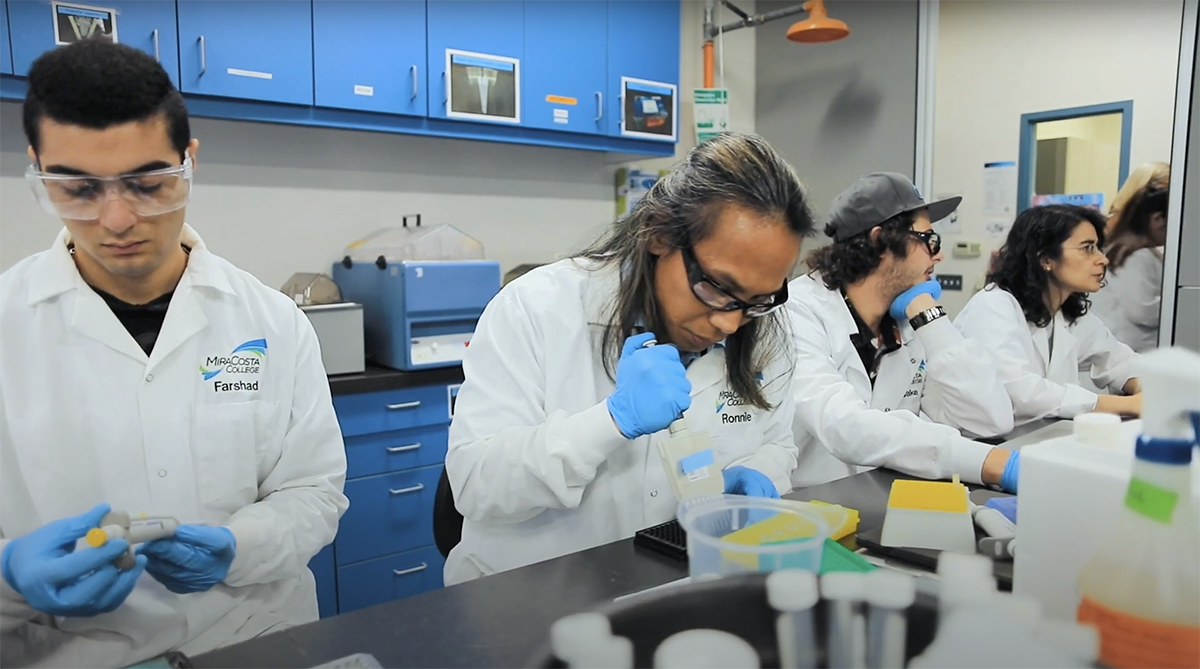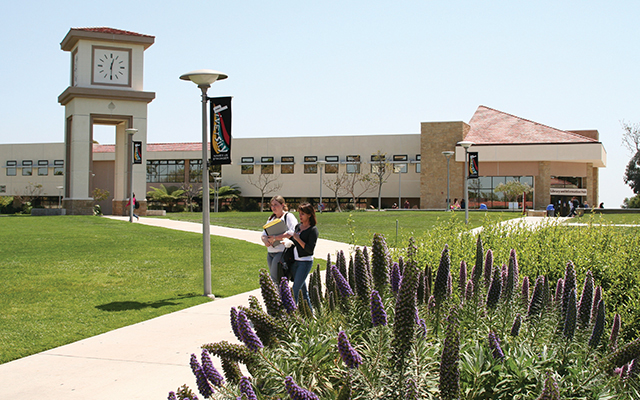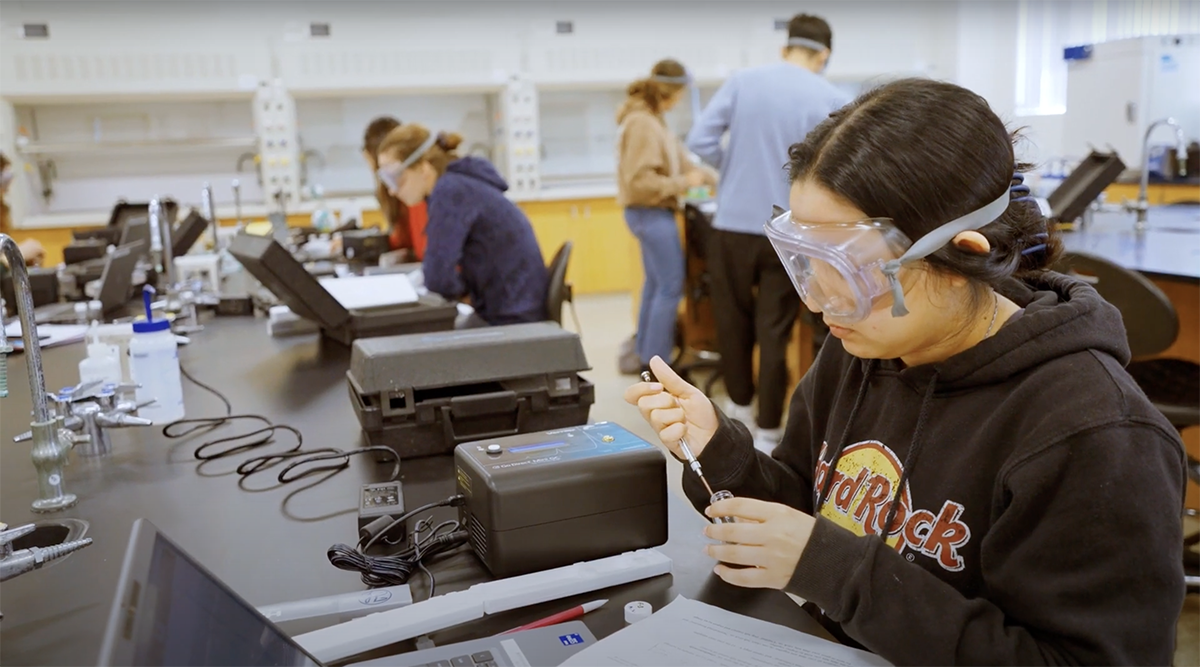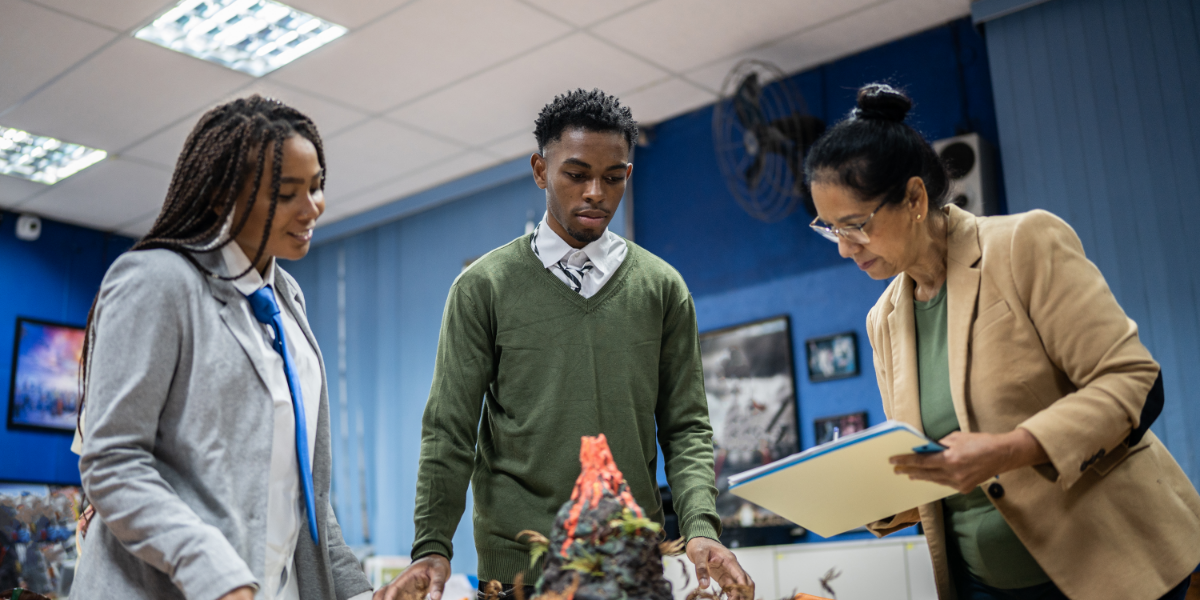Lack of Diversity in STEM
From race to gender, the majority of the science, technology, engineering and mathematics (STEM) workforce hasn’t fully represented the communities in which these careers reside.
Statistics from The Pew Research Center reveal White workers dominate the industry at 63% representation across all types of STEM jobs – while Black and Hispanic or Latino/a workers, for example, represent a combined 28% across the board. The Pew Research Center also reports Black and Hispanic or Latino/a adults are less likely to earn degrees in STEM than other degree fields.
Women, who may currently earn a majority of degrees overall, are still only a small share of degree earners in STEM fields like engineering, computer science, biotechnology, etc.
Dr. Sunita Cooke, Superintendent and President at MiraCosta College, knows these statistics well. Her expertise and influence on workforce development and career education is seen at regional, state and national levels. Aside from her role at MiraCosta College, she is also chair-elect of the Commission on Economic and Workforce Development and a member of the 2022 – 2023 board of directors of the American Association of Community Colleges.
The significant underrepresentation of diversity in STEM is what drives leaders and educators at MiraCosta College, like Dr. Cooke, to provide quality access to opportunity, in hopes that the college can be a factor for change in those numbers.
“STEM is such an important and needed set of skills and it’s been closed off to a number of communities,” Dr. Cooke said. “Community colleges are ideal for making sure these opportunities are accessible, inclusive and there are opportunities to enter STEM fields.”
Expanding Diversity in Biomanufacturing
Recognized for its commitment to expanding diversity in STEM, MiraCosta College was among one of many recipients of a San Diego Foundation Science and Technology grant in April 2023.
The community college received $70,000 to develop a work-based learning training program that seeks out and fosters untapped, diverse talent among undergraduate biotechnology students.
“One of the examples is our biomanufacturing degree,” said Dr. Cooke. “It’s the first of its kind in the nation to meet the unique workforce need in science, production and quality control for our employers in this region.”
Students within the biomanufacturing program are prepared to work within the biotechnology industry in the unique environment of biological production where science thrives in partnership with quality and compliance.
The biomanufacturing program gives students the chance to earn a bachelor’s degree, a unique circumstance in California. MiraCosta College is only one of 15 community colleges in the state and one of three in San Diego County that allows students an opportunity to earn a bachelor’s degree at a California community college.
Mentorship Matters
Students at MiraCosta College not only receive an education, but they are also well-equipped to enter the workforce. The Science and Lab Skills Advancement (SALSA) program takes students through all major sciences.
Students do a rotation of different STEM classes and in turn, build confidence in whatever field they choose. From there, the students move off campus to a partner company and receive work-based learning experience to best prepare them for their futures – and in turn, help workplaces diversify their company.
“I came from the biotech industry – I was an engineer there for eight years before coming to the college,” said Mike Fino, Dean of Mathematics and Sciences at MiraCosta College. “As a community college, we accept 100% of those who apply and we represent the communities we’re in. A lot of companies are recognizing their companies and employee demographics should also represent the communities they’re in.”
The mentorship and hands-on experience students receive is an invaluable lesson as they take the next step into their STEM career fields. Plus, companies appreciate their preparation as well.
“The students we graduate in biotech and biomanufacturing are so well-prepared to go into the lab and be productive. The employers tell us how impressed they are with the skills they walk in with,” said Dr. Cooke. “It makes me so proud of the students we’re graduating.”
According to Dr. Cooke, successful outcomes like these are not possible without partnerships and collaboration.
“Our San Diego region has focused on inclusive economic development and it’s so important that every member of our community can thrive and live in San Diego County and support a family,” she said. “That can’t be done with economic development alone or workforce development or education alone – the support of donors and foundations are so critical to this work and really ensuring all San Diegans can live, thrive and be productive in this county.”
Learn more about the San Diego Foundation Science & Technology program.






